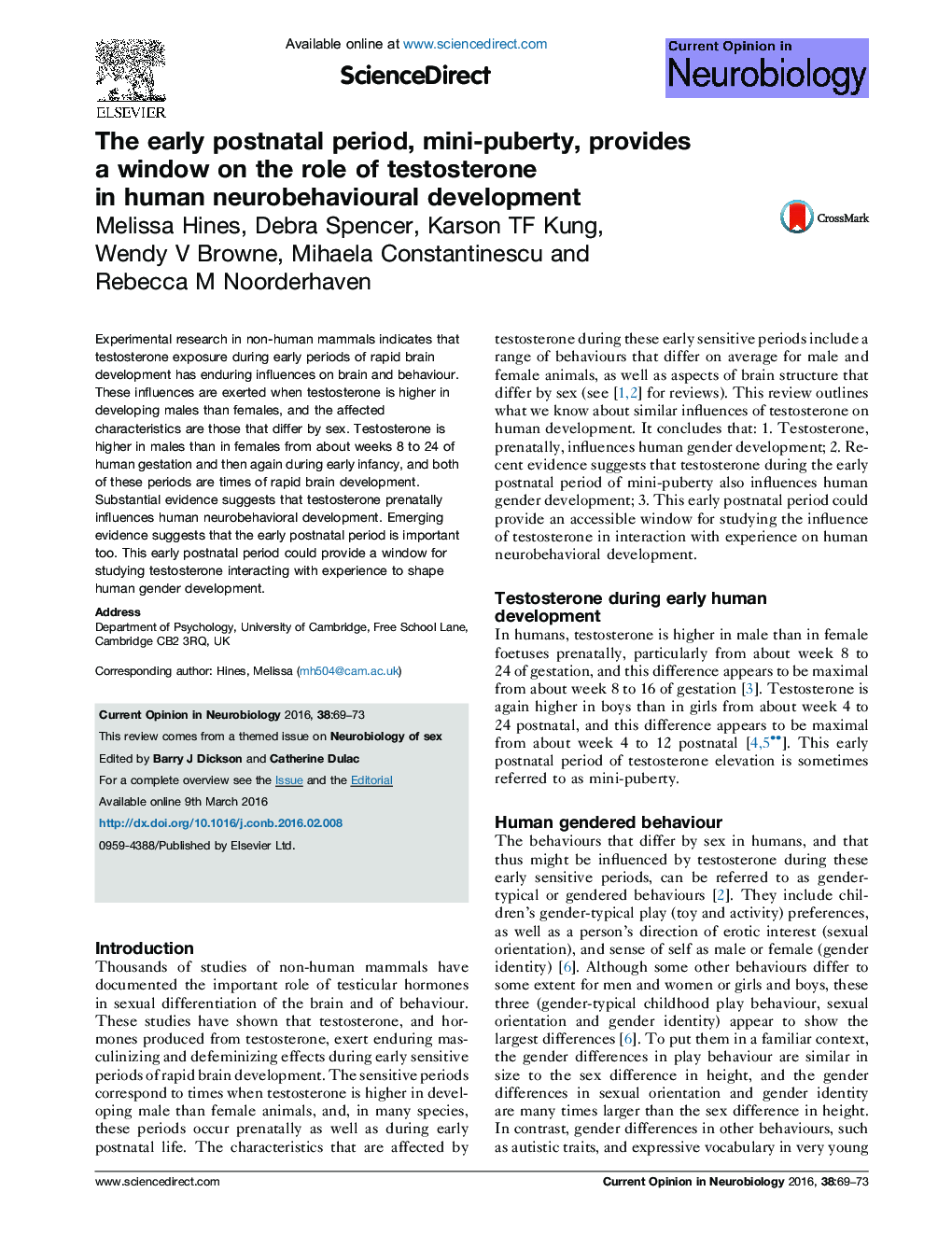| Article ID | Journal | Published Year | Pages | File Type |
|---|---|---|---|---|
| 4334154 | Current Opinion in Neurobiology | 2016 | 5 Pages |
•Testosterone during mini-puberty appears to influence later gender-typical play behaviour.•Testosterone during mini-puberty may also predict other gender-related behaviours.•Saliva samples can measure individual differences in testosterone at the peak of mini-puberty.•Saliva samples seem most informative when collected between weeks 4 and 12 postnatal.•Repeated sampling and the use of measures that show large gender differences could increase power.
Experimental research in non-human mammals indicates that testosterone exposure during early periods of rapid brain development has enduring influences on brain and behaviour. These influences are exerted when testosterone is higher in developing males than females, and the affected characteristics are those that differ by sex. Testosterone is higher in males than in females from about weeks 8 to 24 of human gestation and then again during early infancy, and both of these periods are times of rapid brain development. Substantial evidence suggests that testosterone prenatally influences human neurobehavioral development. Emerging evidence suggests that the early postnatal period is important too. This early postnatal period could provide a window for studying testosterone interacting with experience to shape human gender development.
Graphical abstractThe early postnatal period of testicular activation may provide an accessible window for studying the role of early testosterone exposure in human gender development. There are two periods during early human development when testosterone is higher in developing males than females. These periods occur from about week 8 to 24 of gestation and from about the first to the sixth month postnatal. Both of these periods occur during times of rapid brain development. It is well-established that testosterone during the first of these periods influences later gendered behaviour, including gender-typical play, sexual orientation, and gender identity. There is recent evidence suggesting that testosterone during mini-puberty, just after birth, also influences gendered behaviour, particularly gender-typical play. This early postnatal period when testosterone is elevated is more accessible than the prenatal period, and so could provide a valuable opportunity for studying the role of testosterone in human neurobehavioural development.Figure optionsDownload full-size imageDownload high-quality image (104 K)Download as PowerPoint slide
